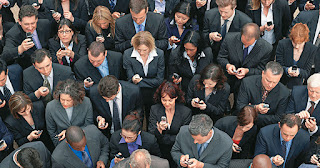Hola Dr Casado, cómo está? Soy X, ahora trabajo en XXX como social media manager.
Te escribo porque desde XXX nos estamos poniendo en contacto con influencers del sector salud y ciencia para que forméis parte de nuestra comunidad, con la que mantenemos contacto y establecemos posibles colaboraciones.
Me gustaría saber si estarías interesado en recibir información y que podamos invitarte a posibles colaboraciones.
En caso que estés de acuerdo, por favor, contesta a este correo electrónico y XXX tratará tus datos principalmente con las finalidades expuestas. Podrás acceder, rectificar y suprimir tus datos, así como otros derechos tal y como se explica en esta información.
Y si quieres más información sobre proyectos y campañas que realizamos, puedes visitar nuestra web dirigida a pacientes (YYY) y seguir nuestros perfiles de Twitter (@YYY) y Facebook (YYY).
Muchas gracias de antemano. Un cordial saludo,
X
Social Media Manager
Hola X,
Muchas gracias por contar conmigo para ese proyecto. Lamentablemente no me considero influencer en ningún aspecto por lo que no considero que mis datos sumen mucho, preferiría mantenerme fuera del archivo.
Un cordial saludo.
Dr. Salvador Casado
En los diez años que llevo presente en redes sociales y mantengo un blog abierto he de reconocer que he recibido todo tipo de peticiones tanto de pacientes como de empresas diversas. Me han invitado a multitud de eventos, he acudido a algunos más por afán de aprender que de posturear y en algún caso he aceptado dietas de viaje o contraprestación económica (pocas) por ponencias. Tengo la conciencia tranquila porque pese a los errores que haya podido cometer conozco el medio sanitario y sus actores e intento mantenerlos en su sitio y yo en el mio.
En el momento actual reconozco que tengo más conflicto de intereses con la empresa en la que trabajo que con la industria. Hay muchos temas dentro del sistema sanitario que no me parecen que cumplan una base ética suficiente. Con respecto a la Industria no me niego a colaborar excepcionalmente con participaciones docentes remuneradas siempre que no supongan un dilema ético que pueda condicionar mi labor profesional. Al ser los temas que trato no clínicos no suele ser el caso. Aunque como pertenezco a SEMFYC en vez de SEMERGEN ganan por goleada las participaciones en congresos gratuitas. En cualquier caso suelo comentar cada propuesta con compañeros, no vaya a ser que resbale y me dé un coscorrón. Y como ven aireo el tema dado que no me parece sano mantener los armarios cerrados, que en sanidad son muchos.
Foto de Miraflores de la Sierra, el pueblo donde trabajo.
The clumsiest health influencer
Hello Dr Casado, how are you? I'm X, now I work in XXX as social media manager.
I am writing to you because from XXX we are getting in touch with influencers of the health and science sector so that you form part of our community, with which we maintain contact and establish possible collaborations.
I would like to know if you would be interested in receiving information and that we can invite you to possible collaborations.
In case you agree, please reply to this email and XXX will treat your data mainly with the stated purposes. You will be able to access, rectify and delete your data, as well as other rights as explained in this information.
And if you want more information about projects and campaigns we do, you can visit our website aimed at patients (YYYY) and follow our Twitter (@YYYY) and Facebook (YYY) profiles.
Thank you very much in advance. Best regards,
X
Social Media Manager
Hi, X,
Thank you so much for counting on me for that project. Unfortunately, I don't consider myself to influence in any aspect, so I don't consider my data to add up too much, I would prefer to stay out of the archive.
Best regards.
Dr. Salvador Casado
In the ten years that I have been present in social networks and maintain an open blog I must admit that I have received all kinds of requests from both patients and various companies. I have been invited to a multitude of events, I have gone to some more to learn than to pose and in some cases I have accepted travel diets or economic compensation (few) for presentations. I feel no guilt because despite the mistakes I may have made, I deeply know the healthcare environment and its actors and I try to keep them in their place and I try to keep myself in mine.
At the moment I admit that I have more conflict of interest with the company I work for than with the industry. There are many issues within the health system that do not seem to me to meet a sufficient ethical basis. With regard to the industry, I do not refuse to collaborate exceptionally with paid teaching participations as long as they do not represent an ethical dilemma that could condition my professional work. Since I deal with non-clinical subjects, this is not usually the case. Although belonging to SEMFYC scientific association instead of SEMERGEN they win by a landslide the participations in free congresses. In any case, I usually discuss each proposal with colleagues, so that I don't slip and give me a slap in the face. And as you can see the subject is aired here because it does not seem healthy to keep the closets closed, which in the health area is common.
最笨拙的健康影響者
卡薩多博士你好,你好嗎?我是X,現在我在XXX擔任社交媒體經理。
我寫信給你是因為從XXX我們正在與健康和科學界的影響者取得聯繫,以便你成為我們社區的一部分,我們與他們保持聯繫並建立可能的合作。
我想知道您是否有興趣接收信息,我們可以邀請您進行可能的合作。
如果您同意,請回复此電子郵件,XXX將主要根據所述目的處理您的數據。您將能夠訪問,糾正和刪除您的數據,以及此信息中說明的其他權利。
如果您想了解我們所做項目和活動的更多信息,您可以訪問我們針對患者的網站(YYYY)並關注我們的Twitter(@YYYY)和Facebook(YYY)個人資料。
非常感謝你提前。最好的祝福,
X
社交媒體經理
嗨,X,
非常感謝你指望我參與那個項目。不幸的是,我不認為自己會在任何方面影響,所以我不認為我的數據加起來太多,我寧願不要存檔。
最好的祝福。
薩爾瓦多卡薩多博士
在我進入社交網絡並維護開放博客的十年中,我必須承認我已收到患者和各公司的各種要求。我被邀請參加各種活動,我已經學習了更多的東西而不是擺出姿勢,在某些情況下,我已經接受了旅行飲食或經濟補償(很少)用於演示。我感到沒有內疚,因為儘管我可能犯過錯誤,但我深深地了解醫療保健環境及其演員,我試圖讓他們保持原位,我努力讓自己保持自己的狀態。
目前,我承認與我所工作的公司有比與行業更多的利益衝突。衛生系統中有許多問題在我看來似乎沒有足夠的道德基礎。關於這個行業,我不會拒絕與付費教學參與進行特殊合作,只要它們不代表可能影響我的專業工作的道德困境。由於我處理非臨床科目,通常情況並非如此。雖然屬於SEMFYC科學協會而不是SEMERGEN,但他們以壓倒性的方式贏得了參加免費大會的機會。在任何情況下,我通常會與同事討論每個提案,這樣我就不會滑倒並給我一記耳光。正如你所看到的那樣,這個主題在這裡播出,因為保持壁櫥關閉似乎並不健康,這在健康領域是常見的。




















